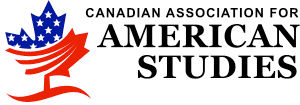Now available at Canadian Review of American Studies Online
Canadian Review of American Studies – Volume 40, Number 1 / March 2010 is now available at http://utpjournals.metapress.com/content/ul941gq1ph31/.
This issue contains:
Television Discourse and Situation Comedy
Paul Attallah
Abstract: This essay is a condensed version of a chapter from the late Paul Attallah’s unpublished doctoral dissertation “TV before TV” (1987) at McGill University. It is published to commemorate the first anniversary of his death. It is an approach to the analysis of television discourse as one that does not question its own epistemo-ideological categories, but rather has tended to view television primarily as a technology capable of producing certain determinate effects. The author takes the example of the sitcom The Beverly Hillbillies to illustrate television micro-practices below the threshold of the dominant TV discourse; for instance that, as Beverly Hillbillies refused to rise above or transcend the sitcom genre, it spoke the great absence in television criticism at the time—the recognition of TV as still fundamentally an “unworthy discourse.”
http://utpjournals.metapress.com/content/0024373hu81h22w6/?p=62cccad07c304eacb469f96fd8cb140b&pi=0
Michael Butter, Lisa Retterath
Abstract: Drawing on theoretical concepts developed by Mark Fenster in his analysis of contemporary conspiracy theories, this essay engages the online film Loose Change, which constitutes the most prominent conspiracy theory formed in the wake of the attacks of 11 September 2001. The different versions of the documentary, released between April 2005 and November 2007, perform markedly different kinds of cultural work. While the earlier versions try to construct a community of conspiracy theorists by alerting the world to alleged holes in the official account of what happened that day, the final cut attempts to stabilize the online community that the earlier versions managed to bring about. By way of conclusion we therefore propose that a focus on the kinds of communities that conspiracy theories have helped form and stabilize throughout American history might prove a fruitful area of investigation.
http://utpjournals.metapress.com/content/06726w11177n4234/?p=62cccad07c304eacb469f96fd8cb140b&pi=1
Future Interior: Subjective (A)voidance in John Updike’s “Rabbit” Novels
David R. Jarraway
Abstract: In Rabbit Is Rich (1981), John Updike’s use of Wallace Stevens’s “Rabbit as King of the Ghosts” crystallizes what American literature in a (post-)Freudian age is particularly prone: ego is no longer master in his own house. Lacan’s observation, therefore, that “[w]hat is realized in my history is not the past definite of what it was … but the future anterior of what I am in the process of becoming” will serve as a theoretical frame within which to critique the suspect future “interior” of “Rabbit” Angstrom throughout Updike’s novel quartet.
http://utpjournals.metapress.com/content/05h4575676544314/?p=62cccad07c304eacb469f96fd8cb140b&pi=2
Politics on Ice: The United States, the Soviet Union, and a Hockey Game in Lake Placid
Donald E. Abelson
Abstract: This paper explores the intersection of sport and politics by examining how and to what extent the 1980 US Men’s Hockey Team’s gold medal victory in Lake Placid was catapulted from the hockey arena to the political arena.
http://utpjournals.metapress.com/content/05872w4n8823273p/?p=62cccad07c304eacb469f96fd8cb140b&pi=3
Learning to Love the Bomb: Robert Lowell’s Pathological Poetics
Adam Beardsworth
Abstract: This paper repositions Robert Lowell’s confessional poetry as a form of resistance in Cold War America. It argues that in several of Lowell’s key poems the figurative absence at the hypo-centre of atomic culture finds its symbolic equivalent in the depressive trying to recover a lost core of selfhood.
http://utpjournals.metapress.com/content/08337675145p141j/?p=62cccad07c304eacb469f96fd8cb140b&pi=4
Diplomats and the Civil War at Sea
Francis M. Carroll
Abstract: The Civil War created problems for Anglo-American relations as Confederate interests attempted to build commerce raiders in British shipyards and to provide blockade-runners to service the Southern economy. US consuls in such key places as Liverpool and Bermuda were instrumental in attempting to stop this traffic by diplomatic means. Confederate commerce raiders, most notably the Alabama and the Shenandoah, were able to put to sea and caused great damage to the Northern merchant fleet, for which the British government was eventually held responsible. The Union Navy, led by figures like Admiral David Glasgow Farragut, found that the capture of Southern ports, such as New Orleans, Mobile, and Wilmington, were the most effective way of stopping blockade-runners. The naval war was a major theatre of operations during the Civil War and secondarily also endangered US relations with Britain.
http://utpjournals.metapress.com/content/0117g52148062440/?p=62cccad07c304eacb469f96fd8cb140b&pi=5
_________________________________________________
Submissions to Canadian Review of American Studies
The Canadian Review of American Studies is published three times a year. The journal publishes articles, review articles, and short reviews; its purpose is to further multi- and interdisciplinary analyses of the culture of the United States and of the social relations between the United States and Canada. The journal invites contributions, in English and French, from authors in all relevant scholarly disciplines related to the study of the United States, and the United States and Canada, as well as to the borders “in-between.” The Canadian Review of American Studies has an international standing, attracting submissions and participation from many countries in North America and Europe.
Recently, the journal has received and published articles from the following disciplines: Anthropology, English, History, American Studies, Canadian Studies, Political Science, Sociology, Communication, Law, African-American Studies, Religious Studies, Economics, Fine Arts, Cultural Studies, and Humanities.
For submission guidelines, please visit www.utpjournals.com/CRAS or contact us at:
Canadian Review of American Studies
Department of English, Carleton University
1125 Colonel By Drive
Ottawa, Ontario, Canada K1S 5B6
E-mail: cras@carleton.ca
Fax: (613) 234-4418
UTP Journals on Facebook www.facebook.com/utpjournals
Join us for advance notice of tables of contents of forthcoming issues, author and editor commentaries and insights, calls for papers and advice on publishing in our journals. Become a fan and receive free access to articles weekly through UTPJournals focus.


Please comment with your real name using good manners.